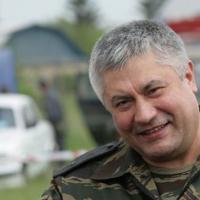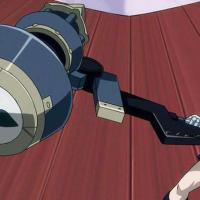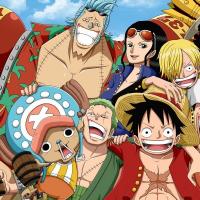Arsene Wenger titles. Arsene Wenger - latest news. The shrewd gentleman Arsene Wenger
There are not many managers in the football world who have become true legends of their clubs. In fact, you can count them on your fingers. Sir Alex Fergusson gave 27 years of his life to the “red devils”, Valery Vasilyevich Lobanovsky to “Dynamo” Kyiv - twenty years.
Arsene Wenger traded his third decade at Arsenal in London, and no matter how some fans treated him (the team has not won the English championship or any European Cup for more than ten years), the Frenchman has long gone down in the history of the Gunners, and it was with him all achievements in the recent history of the club are connected.
Arsene Wenger: biography and interesting facts from life
A boy named Arsen with the characteristic German surname Wenger was born in Strasbourg in October 1949. A post-war shadow lay over Europe, however, unlike many French families, Alphonse and Louise Wenger could not complain about the lack of livelihood. The family had a small business in the form of a café-bistro, so Arsen and his brother and sister could simply play in their free time, as children should, and not do housework with adults.
The guy graduated from school quite successfully, went to study as an engineer at the University of Strasbourg and even received a doctorate in economics. During his studies, he played for various youth football teams. In his youth, Arsene Wenger gravitated towards new knowledge, so at the age of less than 25 he already knew several foreign languages.
By the way, it is the language play on words that gives rise to rumors about the roots with which Arsene Wenger is associated. The nationality of the Arsenal coach is French, although he also has German branches in his family. Another language pun in honor of the Gunners' coach was invented by the Arsenal fans themselves. The fact is that in English the name of the club “Arsenal” is consonant with the phrase “Arsene knows” (Arsen knows). Likewise, Gunners fans express great support and complete trust in their coach.

Carier start
As a player, the French footballer excelled in the position of center back. Today you can often hear that a thinking defender is a bad defender, that you need to play in this role as simply and uncomplicated as possible, that it is better to just knock the ball out rather than dribble.
Arsene Wenger is a clear refutation of this dogma. Being a reasonable person, he calculated his actions several steps ahead on the field, preferring such technical and tactical actions to the banal carrying of the ball to the center of the field. Looking ahead, let's say that such qualities will be useful to him in his work as a football manager. While his coaching partners from famous clubs were accustomed to getting the best footballers for a lot of money here and now, Wenger has always been a supporter of educating young people, “cutting diamonds”, so to speak. Surely some Gunners fans reproachfully remember Monsieur Arsene the opposite effect of such a position - the lack of current trophies. However, time shows that the coach is moving in the right direction, and after almost a ten-year drought, the Gunners won two FA Cups and two FA Super Cups.
In Wenger's career as a player, there were no “big” clubs, big names or trophies raised above his head. All of his playing practice took place in his native France, and the names of the clubs in whose colors the defender played will tell little to the average fan. “Mützig”, “Mulhouse”, “Pierrot Vauban” - in total, over nine years, Wenger played about 200 matches for these teams. Only at the end of his playing career did he move to Strasbourg for three years, with whom he won his only trophy - the French championship.

Transition to coaching
Monsieur Arsene began coaching immediately after finishing his playing career. In 1981, he headed the Strasbourg youth team, and two years later he already worked as an assistant coach at Cannes. In 1984, he himself was already offered to manage the first team - that’s how the coach ended up in Nancy. The crowning achievement of coaching in France was the period from 1987 to 1994, when Arsene Wenger led Monaco onto the field. It was with the Monegasques that “The Professor,” as he would later be called, won his first trophies: gold medals at the French Championship and the National Cup. In addition, under the leadership of the Frenchman, Monaco reached the final of the Cup Winners' Cup in 1992.
In 1995, Monsieur Arsene surprised the football community a lot by replacing one of the top European championships with the exotic J-League. For one season he coached Nagoya Grampus Eight, and at the end of the 1995/1996 championship, Arsene Wenger was recognized as the best coach in Japan. Photos of the French coach can still be found on the club’s posters to this day, and fans from Nagoya are very proud of this fact in the history of their team.

"Professor"
Since the summer of 1996, Arsene Wenger has been the coach of London's Arsenal. From the first days at the club, the new coach of the “gunners” showed an innovative approach to organizing the training process and even hired a whole staff of specialists to help the coach implement an individual approach to the functional training of the team’s players. Individuality applied to everything from the training process to a separate menu tailored to the needs of each player. Along with this, Wenger, unlike other representatives of the elite of English football (Chelsea, Manchester United, Manchester City), is in no hurry to invite established stars to the team for fabulous money; he prefers to raise them from “green” young men .
Thus, at different times, the Arsenal club academy graduated Ashley Cole, Cesc Fabregas and other world-famous stars of modern football. In addition, Monsieur Wenger revealed to the world a lot of young talents, who subsequently shone at the club level and in national teams (Thierry Henry, Patrick Vieira, Robin van Persie and others). It is not surprising that Wenger received the nickname "The Professor" during his time with the club.
Golden times
Thanks to painstaking work, Arsene Wenger very soon won gold medals in the English Premier League with Arsenal. This achievement is also noteworthy because the Frenchman became the first foreign specialist whose team won first place in the championship and the national cup for the first time in one season.

At the beginning of the new millennium, the “gunners” finally joined the group of leaders of European football. The club became a regular at the most prestigious tournament in the Old World, the Champions League. In the English Premier League, Arsenal were neck and neck with the gold medal contenders. The team became the national champion three times (1998, 2002, 2004). In the 2003/2004 championship, the Gunners achieved a very rare achievement - the London team managed to never lose in 38 matches of the national championship and predictably won the championship, which Arsene Wenger's team has not achieved since then.

The personal confrontation between the Frenchman and two other, no less “seasoned fighters” who have seen different things in the Premier League deserves special attention. We are, of course, talking about Sir Alex Fergusson and Jose Mourinho.
Wenger - Mourinho
The Cold War between Arsene Wenger and the Portuguese specialist began back in 2005. Then “The Special One” criticized the Gunners’ coach for fielding eleven foreign players for the next Premier League match. The Arsenal coach countered with a good knowledge of the main squad of the “aristocrats”, which included only one graduate of the Chelsea academy, John Terry.
The Frenchman himself started another verbal spat, accusing Jose Mourinho of ignorance, inappropriate behavior and psychological pressure on his opponent. The Portuguese's answer was not long in coming. Special One gave a sarcastic commentary on the situation, saying that there was a special magazine at Stamford Bridge where club staff included quotes from Wenger about Chelsea. According to the mentor of the “aristocrats,” these quotes barely fit into four volumes.
Wenger - Fergusson
In 2004, an episode called “Pizzagate” occurred in the English Premier League. The instigators of the conflict were Alex Fergusson and Arsene Wenger. Arsenal footballer Cesc Fabregas, emotional after a match that ended unsuccessfully for the Gunners, allowed himself to throw pizza at the legendary Manchester United coach. In that match, a very controversial penalty was awarded against the Gunners, and Monsieur Arsene received a substantial fine after the fact for accusations of simulation against the Red Devils forward Ruud van Nistelrooy.
The next time it was a Frenchman who was on the horse. In 2010, the International Football Statistics Agency published a ranking of the best coaches of the new century. The Arsenal coach took first place on the list, beating his main opponent by nine points.
Arsene Wenger: family and personal life
Due to his type of activity, the Gunners coach is a public figure. However, unlike his football partners, the Frenchman does not like to show off his private life. For a long time, even the most nosy journalists did not know that the coach of the London Arsenal lived with his partner in a civil marriage.

Annie (that was the name of Wenger's wife) and Arsen have an adult daughter, Leah (b. 1992). The couple legalized their marriage only in 2010, but five years later the couple decided to separate.
Behind the Scenes
The name of Arsene Wenger is associated with several interesting facts related to football and more.
For the opportunity to coach Arsenal, Monsieur Arsene in 1996 rejected the offer of the English Football Association to lead the national team.
One of the most difficult languages in the world to learn, Japanese, was conquered by Arsene Wenger in less than a year at the helm of Nagoya Grampus.
At the end of the last millennium, the French Gunners manager received a special Fair Play award for initiating a replay of a cup match with Sheffield United due to a goal scored by his players while an opposing player was seriously injured and was being treated . By the way, for this act Wenger received another nickname - “Gentleman”.
Achievements in a coaching position
In addition to three championships with Arsenal, starting in 1981, the French coach added to his treasury of achievements the Japanese Cup and Super Cup, six FA Cups and Super Cups, as well as the French Cup and gold medals won at the local championship early in his career.
There is an opinion that good coaches have rarely been equally good football players. As an example, you can take Jose Mourinho or Andre Villas-Boas (who, by the way, was not a professional football player at all). Arsene Wenger is one of these coaches (photo below in the article). French by birth, English at heart - this is how this coach can be described. Arsene Wenger, his biography and everything connected with him are very interesting.
Frenchman's childhood and youth
Despite the fact that Arsene Wenger was born just 4 years after the end of the bloody World War II, his childhood can be called quite cloudless. He grew up in a very wealthy family, which had its own business selling and replacing auto parts. He spent his entire childhood in a small village, where in his free time he played football in a yard team. Proudly giving an interview about the fact that they knew such a great man, they note that even then he was distinguished by colossal organizational skills and preferred not so much to play as to coach. Since, in parallel with the business of selling auto parts, his parents owned a pub, where they constantly broadcast matches and discussed football events, little Arsen felt that football was exactly what he was ready to devote his life to.
Gaming career
Arsene Wenger did not reach any great heights as a football player. Until the age of 24, he played in the amateur team of France, after which he moved to the 2nd League team Mulhouse, where in 2 years he played a little more than 50 matches. Then - the 3rd League and the Pierrot Vauban team, in which he was captain and played 80 matches, scoring 20 goals. A very good indicator for a central defender (he occasionally played as a defensive midfielder).

Apparently, these statistics attracted a larger club, and he was invited to join the Strasbourg team. During his 3 years with the team, he played in only 10 domestic matches and appeared in one UEFA Cup match, but this allowed him to receive the French Champion medal, which was the greatest achievement in his playing career.

Coaching career
Immediately after the end of his playing career, the president of Strasbourg saw promise in Arsen and offered him the position of coach of the youth team. Wenger, without hesitation, agreed and gained his first experience coaching young guys. He spent 2 years as the head coach of the Strasbourg youth team and, thanks to his success, received an offer to become an assistant coach at the elite division club Cannes.
And now, finally, Arsene Wenger receives an offer to lead his first professional club. This team turned out to be “Nancy”, but, as they say, “the first damn thing was lumpy.” The young and ambitious coach did not succeed in many things. Perhaps his ambitions preceded him.
After 3 years at Nancy, he became the head coach at Monaco and it was there that he was able to unleash his coaching potential, winning Ligue 1 in his first year. However, after this, unable to repeat his achievement, Wenger resigned and went to coach in the Land of the Rising Sun - Japan. After working with the local club Nagoya Grampus, he returned to Europe. Here in 1996, Arsene Wenger headed Arsenal (London), and hardly anyone could have imagined that their cooperation would last for such a long time.
Next September, Wenger will be able to safely celebrate 20 years since the start of his collaboration with Arsenal. A whole generation of talented football players passed through his coaching hands. Just look at the names of such players as Cesc Fabregas, Thierry Henry, Nicolas Anelka and Robin. The list can be continued for a very long time. Over the years of working with the Londoners, Wenger managed to lead them to the desired championship 3 times and made the club a giant of European football, which even teams such as Real Madrid and the Catalan Barcelona feared. He led the team to the finals of the Champions League and Europa League. The team may have its ups and downs, but everyone still believes in the coach.

Fight with Sir Alex Ferguson
Throughout Arsene Wenger's career, everyone in England watched the confrontation between two geniuses of the coaching corps - Wenger himself and Just remember the 2004 match between Manchester and Arsenal, when a rather controversial penalty was awarded against the Londoners. The match ended 2-0 in favor of the Manchester team, after which Gunners star Cesc Fabregas threw food at Alex Ferguson. Arsene Wenger, in turn, received a fine of 15,000 pounds sterling due to post-match discussions about the referee's decision (Wenger was sure that he was faking it). Continuing to insist on his position after the match, the Arsenal coach received such a fine more than once.

Awards
As a coach, Arsene Wenger has repeatedly received the most prestigious awards. And this is not surprising: 19 years of work in one of the strongest clubs in the strongest championship on the planet makes its presence felt. Three times the Frenchman became the best coach of the English Premier League, and this is a very honorable title, because Ferguson, Mourinho and many other strong specialists are on the same level with Wenger. He also holds the record for the most awards given each month to the best Premier League manager over a period of time. According to the calculations of the IFFHS (International Federation of Football History and Statistics), he became the best coach of the first decade of the 21st century, beating Alex Ferguson, who was in 2nd position.
Bottom line
Without a doubt, Arsene Wenger is exactly the coach who can be considered one of the great specialists in the history of football. And who knows how many more years he will work with his brainchild called Arsenal (London). We can say with confidence that the “coach-club” alliance will last until the coach deems it necessary to break these strong bonds.
Education
Football player
Education
Graduated from the Faculty of Engineering of the University of Strasbourg (1974), has a doctorate in economics. Speaks six languages: English, German, French, Italian, Spanish, Japanese.
Football player
In his youth, his idols were Raymond Kopa, then Pele. He made his debut as a central defender in the amateur team AS Mutzig. He signed his first professional contract at the age of 24 with the 2nd division club FC Mulhouse and continued his career with the 3rd division club Pierrots Vauban Strasbourg. He played at the highest level for RC Strasbourg, playing only 12 matches over 3 seasons. In the 1978/1979 season he received the French champion title and also took the field in one UEFA Cup match.
Trainer
In 1981-1994 he was involved in coaching in France: he was a coach of the youth team of Strasbourg (1981-1983), an assistant coach at AS Cannes (1983-1984). In 1984-1987 - head coach of AS Nancy-Lorraine, in 1987-1994 - head coach of AS Monaco. In the 1987/1988 season, Monaco became the champion of France, and in 1992 - the winner of silver medals, in 1989 - the finalist of the French Cup, in 1991 - the winner of the French Cup, in 1992 - the finalist of the Cup Winners' Cup.
In 1995-1996 he coached the Nagoya Grampus Eight club (Nagoya, Japan), which won the Emperor's Cup and the J-League Cup in the 1995/1996 season. At the end of this season, he was recognized as the best coach in Japan.
Arsenal head coach
Since 1996 - head coach of the Arsenal club (England). Under him, the club became the champion of England (seasons 1997/1998, 2001/2002, 2003/2004), winner of the FA Cup (1997/1998, 2001/2002, 2002/2003, 2004/2005), winner of the FA Super Cup (1998/1999, 1999/2000, 2002/2003, 2004/2005), Champions League finalist (2005/2006), UEFA Cup finalist (1999/2000).
Heading " Arsenal“, created a team of specialists specifically dealing with the functional training of football players. Each player received an individual training program and recovery procedures. A special diet was also developed for each football player. These measures contributed to the club achieving high results. He is known for his active and successful selection policy - under him, Arsenal actively acquires young football players, who then become “stars”.
In England they call him "The Professor". The first foreign coach in England whose club won the national championship. The only foreign coach in England (that is, a coach not from Great Britain) who managed to do the “golden double” - winning both the championship and the Cup in one season. The first foreign coach recognized in this country as “coach of the year”. In 2001, he refused the post of coach of the French national team, wanting to continue working with " Arsenal».
He enjoys great trust from fans, which is why the phrase “Arsene knows” is common.
In the 1998/1999 season he won the Fair play award for refusing to win the cup match with Sheffield. Then one of the Sheffield players was injured, after which his partner kicked the ball over the sideline to interrupt the game and allow the player to receive medical attention. According to the “unspoken” gentlemanly rules, the Arsenal players were supposed to give the ball to the opponent in this case, but instead they kept the ball and scored a goal, which did not contradict the rules. As a result, Arsenal won with a score of 2:1 (this goal was decisive). Arsene Wenger called for a replay of the match. In the new match, Arsenal won again with the same score.
Interview with Arsene Wenger, taken by a special correspondent for SportObzor magazine. Ru Sergei Sokolov, preceded by a detailed description of this coach:
A man with the face of an English lord, who has unquestioned authority among everyone who knows him, in a word - a most attractive personality. He does not run away from questions, but tries to find answers to them, no matter what the cost. He knows how to initiate a thought. In England, Wenger has developed an excellent relationship with the press, and it is invariably on his side, since he himself is always ready to support it. He knows perfectly well what he wants, and therefore quickly got used to English soil. In coaching, he is not lacking in insight and even cunning. In addition, he is distinguished by excellent endurance and patience. It “produces” new stars such as Nicolas Anelka, Thierry Henry, Emmanuel Petit, Patrick Vieira, Sylvinho, Van Persie, Eboue, Fabregas. He simply helps them find their place on the field and teaches them to understand and “read” the game. Wenger allows his players the necessary freedom within the framework of the overall task. And his philosophy bears fruit. To verify this, just look into the office where the club’s trophies are displayed
This year an entire era will end - after 22 years of work, Arsene Wenger leaves London Arsenal. And no matter how the fate of the French coach turns out in the future, his name will be associated with this club for a long time.
Arsene Wenger
- Country: France.
- Position – defender.
- Born: October 22, 1949.
- Height: 191 cm.
Biography and career of Arsene Wenger
Arsene Wenger was born in Strasbourg, into a fairly wealthy family. His parents owned either a cafe or a bar, so the childhood of the future luminary of the European coaching workshop was quite prosperous, especially against the backdrop of post-war devastation.
Arsene Wenger is French by nationality, although his surname undoubtedly has German roots.
Arsene Wenger - football player
But to be honest, Arsene Wenger was a rather mediocre football player. He spent the lion's share of his playing career in various clubs in the second and third divisions of the French Championship, playing as a central defender.
Only at the end of his career did Wenger find himself in Strasbourg, a club in the French top division, with which he was able to win the championship title in 1979. True, it’s difficult to call Arsen’s contribution to this achievement not only significant, but at least significant - he played only six matches in the championship, replacing his colleagues in the role who dropped out due to injuries and disqualifications.
Arsene Wenger - coach

In 1981, 32-year-old Arsene Wenger ended his playing career and immediately began coaching - first coaching the Strasbourg youth team, and then working on the coaching staff of Cannes.
In 1984, Arsene Wenger took charge of Nancy, with whom he carried out the task of maintaining a place in the French top division for two years in a row. In 1987, Nancy was eliminated, taking penultimate place in the French Championship (for some reason it is not customary to remember this episode in Wenger’s biography, but, as they say, you can’t erase the word from the song). However, Wenger at that time was conducting long (they lasted more than a year) negotiations with Monaco. Or rather, the coach agreed to a promotion, but the clubs could not agree on the amount of vacation pay.
The Monegasque leadership was able to discern enormous potential in the young coach. At the end of the 80s, football had not yet been “professionalized”, so to speak. No, the players and coaches were professionals, but such things as, say, a team nutritionist were a novelty back then.
Wenger approached football scientifically, and he did not have any small details in preparing the team. A detailed analysis of the opponent’s game, his own attacking style, meticulous preparation for matches, control over the players’ nutrition and daily routine - all this set Arsen apart from his coaching colleagues. For this approach, Arsene Wenger earned the respectful nickname “Professor”.

The results with Monaco were not long in coming - with Wenger’s first goal, the club, after a 6-year break, regained the French champion title, and then for five years in a row took 2nd - 3rd place, and in 1991 won the French Cup. A year later, Monaco reached the final of the Cup Winners' Cup, but lost there to Werder Bremen.
Under Wenger, the only African footballer, the winner of the Ballon d'Or, blossomed in Monaco, the very young Emmanuel Petit and.
In the summer of 1994, Bayern Munich was interested in the young coach; he flew in for negotiations himself, but the Monegasques refused. Even more strange is the dismissal of Arsene Wenger after the unsuccessful start of the 1994-1995 season: after all, it seemed that such a coach deserved a certain amount of trust.
Inexplicably, one of the most promising coaches in Europe ended up in Japan, where in a year with the previously not very successful Nagoya Grampus club he managed to win the Emperor's Cup and the country's Super Cup, and became the best coach of the J-League.
"Arsenal"
1996 – 2018

"Arsene Who?" (“Arsen who?”) - all English newspapers were full of these and similar headlines in the summer of 1996. It was a reaction to the appointment of Arsene Wenger as head coach of London's Arsenal. This is now the richest league in the world, full of foreign coaches. At the same time, the arrival of a specialist from the continent, and a relatively young one at that, plus one who worked in exotic Japan, was a bolt from the blue for the conservative and prim British.
An even greater revelation was the game that Wenger began to instill in Arsenal. Before his arrival, the Gunners, like the vast majority of English clubs, played their British football with an abundance of duels, crosses and long passes. Arsene Wenger gave the team a combinational style of play, and the main character of that team was the inimitable.
Already in his first season, Wenger led the team to bronze medals, and a year later Arsenal made a “double”, winning the championship and the FA Cup. Moreover, as the championship progressed, the gap from the leading Manchester United reached 12 points and many bookmakers even stopped accepting bets on the team’s victory.
Finesse is the main feature of Arsene Wenger's attacking football. Nicolas Anelka, Frederic Ljunberg, Thierry Henry, Robert Pires, Cesc Fabregas, Tomas Rosicky - these and other football players who at different times played under Wenger at Arsenal knew how to play a pass and were distinguished by their unconventional thinking.

Moreover, all this grace was based on a steel frame in the person of Sol Campbell, Ashley Cole, . This symbiosis made Arsenal one of the best teams in Europe in the early-mid 2000s. And it became its peak (only Turin’s Juventus in 2012 could pull off something like this in the 21st century, but let’s not forget about the completely different levels of resistance in the Premier League and Serie A).
And the confrontation between Arsene Wenger and Alex Ferguson at that time became the main one not only in England (from 1997 to 2004, these teams competed for the English champion title exclusively among themselves), but also, perhaps, throughout Europe.
But victories in European cups bypassed Wenger. In 2000, Arsenal confidently reached the UEFA Cup final, but in the final match they unexpectedly lost to the Turkish Galatasaray in a penalty shootout.
In the Champions League, the Gunners reached the long-awaited final in 2006. But in what began with a sending off, Wenger’s men were unable to maintain their advantage and lost 1:2.
It is this defeat that is considered to be the beginning of the fall of Hungarian Arsenal. In principle, that’s how it was. Constant failures in the main European tournament forced the team leader to leave the club. The Frenchman did not hide that his only motive for moving to Barcelona was the opportunity to win the Champions League.

Then Arsenal experienced a real “trophy drought” - between 2005 and 2014 the team could not win a single trophy. Moreover, from year to year, the same thing was actually repeated: Arsenal started powerfully, destroying their opponents one after another, began to slip closer to the new year, and by the middle of the second round they fell apart and fell out of the fight for the title.
At first, there were few dissatisfied people - the club that was building a new stadium (by the way, the construction of the Emirates began at the suggestion of Arsene Wenger) saved on transfers. The Gunners regularly qualified for the Champions League, playing the most attractive football in England, so for the time being everything suited everyone.
But time passed, and Arsenal’s results did not get better, and the club finally began to acquire expensive players - Mesut Ozil, Alexis Sanchez, . It was then that demands for Wenger’s resignation began to be heard more and more often, and later Arsenal fans began to hold entire protests on this issue.
In the end, it all ended with the fact that at the end of the 2016-2017 season, Arsenal failed to qualify for the Champions League for the first time in 20 years, and in April 2018 it was announced that at the end of the season, Arsene Wenger would leave the post of head coach of Arsenal. .
Speaking about the reasons for Arsene Wenger's failures in recent years, I want to note two things. First, Wenger became a hostage to his own credo; he could not and did not want to play differently. If he had moved away from his principles, built a simpler game, perhaps Arsenal would have had more trophies, but it would have been a completely different Arsenal and a completely different Arsene Wenger.

In terms of his dedication to the idea, he can be compared with Josep Guardiola - he also fanatically instilled in Manchester City a football unusual for English clubs. But there is a significant difference between Arsene and Pep (I’m not belittling the merits of the latter, I’m just stating a fact) - Wenger could not point his finger at any player he needed and get him into the team.
Second. On the good side, Wenger should have left at least three years earlier - then it was already obvious that he could not give the club anything new, and every year of stagnation aggravated the situation. But the Arsenal management believed in the coach, and Arsene Wenger, like no one else, deserved a certain carte blanche.
In addition, for Arsenal he was always more than just a coach; Wenger resolved organizational, personnel and transfer issues. His role at the club is rivaled only by Alex Ferguson's at Manchester United. I don’t remember any other examples of such a coach’s influence on all processes within a club in modern football.
Titles of Arsene Wenger - football player
- Champion of France.
Achievements of Arsene Wenger - coach

Team
- Two-time French champion.
- Winner of the French Cup.
- Winner of the Emperor's Cup (Japan).
- Japanese Super Cup winner.
- Three-time English champion.
- Seven-time FA Cup winner.
- Seven-time winner of the English Super Cup.
Individual
- Best coach of the Japanese J-League in 1995.
- Coach of the season in the Premier League - 1998, 2002, 2004.
- Coach of the month in the Premier League - 14 times.
- Coach of the Year in Europe - 2000, 2002, 2003, 2004.
- Best coach of France 2008.
- The best coach of the first decade of the 21st century.
- Inducted into the English Football Hall of Fame.
Family and personal life of Arsene Wenger

Arsene Wenger does not like to show off his personal life. He lived in a civil marriage with his wife Annie Brosterhouse for a long time, and only in 2010 the couple decided to legalize their relationship.
And their only daughter Leah was born back in 1992. In 2015, Arsen and Annie divorced; since then, journalists have not been able to lift the veil of secrecy about Wenger’s personal life.
- Arsene Wenger is the most decorated coach in Arsenal history; under his leadership the club won 17 trophies.
- Arsene Wenger became the first non-British coach to win the English Championship.
- In addition, Wenger became the first foreign coach in England who managed to achieve a “golden double” with the team.
- Arsene Wenger was the first foreign coach in England to be recognized as coach of the year.

- Under Arsene Wenger, Arsenal qualified from their Champions League group stages 17 times in a row, a European record.
- At the same time, Arsenal was haunted by a kind of “curse of the 1/8 finals”. Since the 2010-2011 season, the Gunners have been eliminated from that stage of the tournament seven times in a row, twice by Barcelona and three times by Bayern.
- Arsene Wenger never won a European Cup, and his teams lost in the finals of all continental tournaments - the Champions League and the UEFA Cup.
- The confrontation between Arsene Venus and Jose Mourinho is well known. It all started with the fact that “The Special One,” while still the Chelsea coach, criticized Wenger for fielding a squad for the match that did not include a single Englishman.
- Arsene Wenger's penchant for long jackets and down jackets has become the subject of many memes and jokes. Personally, I like the joke that Arsene Wenger’s down jacket could well coach some modest Premier League club.
- As a child, Wenger supported Borussia Mönchengladbach and often traveled to matches from Strasbourg, since the distance between the cities is just over 300 kilometers.

- Arsene Wenger is a very educated man, he speaks six languages: English, German, French, Spanish, Italian and Japanese, and has a master's degree in economics from the University of Strasbourg.
- And while working in Japan, Wenger wrote a book on economics.
- Arsene Wenger loves the work of Bob Marley.
- Arsene Wenger starred in the feature film Goal 2: Life is a Dream, where he played himself, as well as in several documentaries about football.
- A cosmic body is named in honor of Arsene Wenger - asteroid “33179 Arsenvenger”, discovered in 1998.
Arsen and Arsenal. There is a certain symbolism in this - Wenger's name almost completely coincides with the name of the team to which he devoted most of his coaching life.
 The oldest sport in the world
The oldest sport in the world Vladimir Kolokoltsev: service in Afghanistan, the fight against organized crime groups and other facts from the biography of the head of the Ministry of Internal Affairs
Vladimir Kolokoltsev: service in Afghanistan, the fight against organized crime groups and other facts from the biography of the head of the Ministry of Internal Affairs What is the difference between shallots and onions? Is it possible to replace them with each other? Differences from onions
What is the difference between shallots and onions? Is it possible to replace them with each other? Differences from onions All women are like women, but I am a million dollar fool. And the main question is: what kind of woman do you need to be for this?
All women are like women, but I am a million dollar fool. And the main question is: what kind of woman do you need to be for this? Elsa Scarlett Titania. Rearmament of Elsa. Secrets of Erza Scarlett's Heart
Elsa Scarlett Titania. Rearmament of Elsa. Secrets of Erza Scarlett's Heart Anime character Elsa Alaya: biography, armor and interesting facts
Anime character Elsa Alaya: biography, armor and interesting facts The most popular anime heroine
The most popular anime heroine